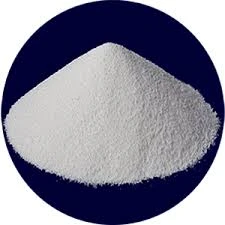- Afrikaans
- Albanian
- Amharic
- Arabic
- Armenian
- Azerbaijani
- Basque
- Belarusian
- Bengali
- Bosnian
- Bulgarian
- Catalan
- Cebuano
- Corsican
- Croatian
- Czech
- Danish
- Dutch
- English
- Esperanto
- Estonian
- Finnish
- French
- Frisian
- Galician
- Georgian
- German
- Greek
- Gujarati
- Haitian Creole
- hausa
- hawaiian
- Hebrew
- Hindi
- Miao
- Hungarian
- Icelandic
- igbo
- Indonesian
- irish
- Italian
- Japanese
- Javanese
- Kannada
- kazakh
- Khmer
- Rwandese
- Korean
- Kurdish
- Kyrgyz
- Lao
- Latin
- Latvian
- Lithuanian
- Luxembourgish
- Macedonian
- Malgashi
- Malay
- Malayalam
- Maltese
- Maori
- Marathi
- Mongolian
- Myanmar
- Nepali
- Norwegian
- Norwegian
- Occitan
- Pashto
- Persian
- Polish
- Portuguese
- Punjabi
- Romanian
- Russian
- Samoan
- Scottish Gaelic
- Serbian
- Sesotho
- Shona
- Sindhi
- Sinhala
- Slovak
- Slovenian
- Somali
- Spanish
- Sundanese
- Swahili
- Swedish
- Tagalog
- Tajik
- Tamil
- Tatar
- Telugu
- Thai
- Turkish
- Turkmen
- Ukrainian
- Urdu
- Uighur
- Uzbek
- Vietnamese
- Welsh
- Bantu
- Yiddish
- Yoruba
- Zulu
nóv . 12, 2024 04:16 Back to list
dexamethasone sodium phosphate 4 mg/ml injection solution
Dexamethasone Sodium Phosphate 4 mg/ml Injection Solution An Overview
Dexamethasone sodium phosphate is a synthetic glucocorticoid that is widely used in the medical field for its potent anti-inflammatory and immunosuppressive properties. The formulation of dexamethasone sodium phosphate at a concentration of 4 mg/ml in injection solution offers healthcare professionals a versatile tool for treating a variety of conditions.
Mechanism of Action
Dexamethasone functions by mimicking the effects of cortisol, a natural hormone produced by the adrenal glands. It exerts its effects by binding to glucocorticoid receptors, leading to the modulation of various genes involved in inflammation and immune response. This mechanism helps to suppress the inflammatory process, reducing symptoms associated with conditions like allergies, autoimmune diseases, and certain types of cancer.
Indications for Use
The dexamethasone sodium phosphate injection is indicated for a range of medical conditions. It is commonly used in treating
1. Autoimmune Disorders Conditions such as rheumatoid arthritis and lupus can cause significant inflammation. Dexamethasone helps to mitigate these inflammatory responses.
2. Allergic Reactions Severe allergic reactions, including anaphylaxis, can be life-threatening. Dexamethasone injection can provide rapid relief by reducing inflammation and swelling.
3. Respiratory Issues In cases of exacerbations of chronic obstructive pulmonary disease (COPD) or asthma, this medication can help alleviate symptoms by reducing airway inflammation.
dexamethasone sodium phosphate 4 mg/ml injection solution

5. Cancer Treatment It plays a significant role in managing certain types of cancers by alleviating symptoms associated with tumor inflammation and by acting as an adjunct therapy in some chemotherapy regimens.
Administration and Dosage
Dexamethasone sodium phosphate is typically administered via intramuscular or intravenous injection. The dosage depends on the specific condition being treated, the severity of the disease, and the patient’s response to treatment. It is crucial for healthcare providers to tailor the dosage to the individual needs of each patient to minimize potential side effects.
Side Effects and Precautions
While dexamethasone is generally safe when used appropriately, potential side effects should be considered. Common side effects include increased blood sugar levels, weight gain, disturbed sleep, and mood changes. Long-term use can lead to more serious complications, such as osteoporosis, adrenal suppression, and increased susceptibility to infections.
Patients with pre-existing conditions such as diabetes, hypertension, or peptic ulcer disease should use dexamethasone cautiously. It is also vital to monitor patients for signs of infection, as the immunosuppressive effect of dexamethasone can mask symptoms of infection.
Conclusion
Dexamethasone sodium phosphate 4 mg/ml injection solution is a powerful medication utilized in numerous therapeutic areas. Its effectiveness in controlling inflammation and modulating the immune response makes it a staple in modern medicine. However, understanding the potential side effects and contraindications is essential for safe and effective use. Physicians must remain vigilant when prescribing this medication, ensuring that each patient receives the most appropriate care tailored to their unique health needs. As with any powerful pharmacological agent, the focus should always be on achieving the best possible outcomes while minimizing risks.
-
Guide to Oxytetracycline Injection
NewsMar.27,2025
-
Guide to Colistin Sulphate
NewsMar.27,2025
-
Gentamicin Sulfate: Uses, Price, And Key Information
NewsMar.27,2025
-
Enrofloxacin Injection: Uses, Price, And Supplier Information
NewsMar.27,2025
-
Dexamethasone Sodium Phosphate Injection: Uses, Price, And Key Information
NewsMar.27,2025
-
Albendazole Tablet: Uses, Dosage, Cost, And Key Information
NewsMar.27,2025













